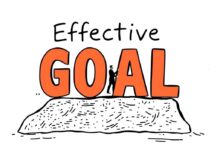How to deal with emotional fatigue and inner burnout

Begin by incorporating deliberate pauses into your daily routine. Schedule short breaks every hour to step away from tasks, allowing your mind a moment to reset. Use this time for deep breathing exercises or a brief walk; both practices can significantly enhance focus and rejuvenate mental clarity.
Prioritize quality rest as a non-negotiable aspect of your life. Aim for 7-9 hours of uninterrupted sleep each night, as it is during this time that your body repairs itself and restores energy levels. Create a calming bedtime ritual: dim the lights, reduce screen time, and engage in relaxing activities like reading or meditation.
Developing awareness of your emotional state is crucial. Regularly check in with yourself throughout the day to assess how you feel. Are you overwhelmed? Anxious? Acknowledging these feelings can help you address them before they escalate, allowing for more proactive management of stressors.
Incorporate energizing practices into your week, such as physical exercise or creative hobbies. Engaging in movement not only boosts endorphins but also promotes mental well-being. Likewise, pursuing activities that ignite passion and joy will replenish your spirit and drive.
Recognizing Early Symptoms
Monitor your energy levels closely. A sudden drop in motivation or enthusiasm for tasks that once excited you can signal the need to reset.
- Physical Signs: Frequent headaches, muscle tension, or sleep disturbances are clear indicators that rest is overdue.
- Mood Changes: Irritability, sadness, or apathy may arise as emotional resources deplete. Acknowledge these shifts promptly.
- Cognitive Clarity: Difficulty concentrating or making decisions often suggests a brain overwhelmed by stress. This is a cue for self-care initiatives.
Engaging in regular self-assessment helps identify these symptoms early. Schedule time to reflect on your mental state and adjust your routines accordingly. Implement restorative practices such as short breaks throughout the day to recharge your energy.
- Prioritize sleep; aim for 7-9 hours each night to restore both body and mind.
- Incorporate mindfulness techniques like meditation or deep breathing exercises into your daily life.
- Set boundaries around work-related communications during personal time to enhance overall well-being.
The earlier you recognize these signs, the better equipped you’ll be to take action. Regularly assess how you’re feeling and make adjustments to foster a balanced lifestyle that promotes lasting resilience and energy replenishment.
Implementing Daily Breaks
Schedule short pauses every 60-90 minutes during your workday. Use these moments to step away from screens and engage in simple activities that promote rest, such as stretching, walking, or deep breathing exercises. This practice enhances awareness of your physical and mental state, preventing prolonged periods of strain.
Create a dedicated break ritual. Whether it’s enjoying a cup of tea, listening to music, or meditating for five minutes, consistency helps recharge your energy. Consider using reminders or apps that signal when it’s time for a break.
Incorporate nature into your breaks. If possible, spend time outdoors to benefit from fresh air and natural light. Nature has a profound impact on mood and can significantly improve feelings of stress.
Prioritize self-care during these intervals. Engage in activities that bring you joy or relaxation–reading a few pages of a book, practicing mindfulness, or simply sitting in silence can rejuvenate your mind.
Reflect on how these breaks affect your productivity and mental clarity over time. Adjust the duration and frequency based on what feels most beneficial for you, promoting an ongoing commitment to self-care.
Building Supportive Networks
Engaging with a community can significantly enhance your mental well-being. Seek out groups or individuals who share similar interests and values, creating a network that offers understanding and encouragement. This support can help you reset your emotional state, providing the energy needed to tackle challenges.
Participate in local workshops or online forums related to your field or hobbies. Such environments foster awareness of shared experiences and allow for open discussions about stressors and coping mechanisms. Connecting with others not only validates feelings but also introduces new perspectives on managing pressures.
Establish regular check-ins with friends or colleagues. These conversations can serve as a mini-therapy session, where you share insights and strategies for maintaining balance. The act of voicing concerns often brings relief, allowing you to rest mentally while gaining valuable feedback from trusted sources.
Consider joining peer support groups, where individuals come together specifically to discuss their struggles and triumphs. These gatherings cultivate a sense of belonging, reminding you that you are not alone in facing difficulties. They provide a safe space to express emotions without judgment.
Lastly, invest time in nurturing existing relationships. Schedule casual meet-ups or virtual coffee breaks with loved ones. Strengthening these bonds enhances resilience, enabling you to recharge emotionally during tough times.
Practicing Mindfulness Techniques
Incorporate daily mindfulness exercises into your routine to reset your mental state. Start with a five-minute breathing exercise: find a quiet space, sit comfortably, close your eyes, and focus solely on your breath. Inhale deeply through your nose, hold for a moment, then exhale slowly through your mouth. Repeat this cycle until you feel a shift in your energy.
Introduce short meditation sessions throughout the day. These can be as brief as three minutes where you concentrate on the present moment without judgment. Notice thoughts that arise and gently redirect your focus back to your breath or physical sensations. This practice enhances self-care by providing necessary rest for the mind.
Engage in mindful walking by immersing yourself in the environment around you. Pay attention to each step, the feeling of the ground beneath your feet, and the sounds surrounding you. This not only helps clear mental clutter but also rejuvenates energy levels.
Utilize guided imagery techniques as another tool for relaxation. Visualize a serene landscape or a place where you feel safe and at ease. Spend time mentally exploring this setting; it serves as an effective way to reduce stress and recharge.
Finally, incorporate gratitude practices into mindfulness efforts. Each evening, list three things you’re thankful for that day. This simple act can shift focus from stressors to positive aspects of life, fostering resilience and enhancing self-care routines.







